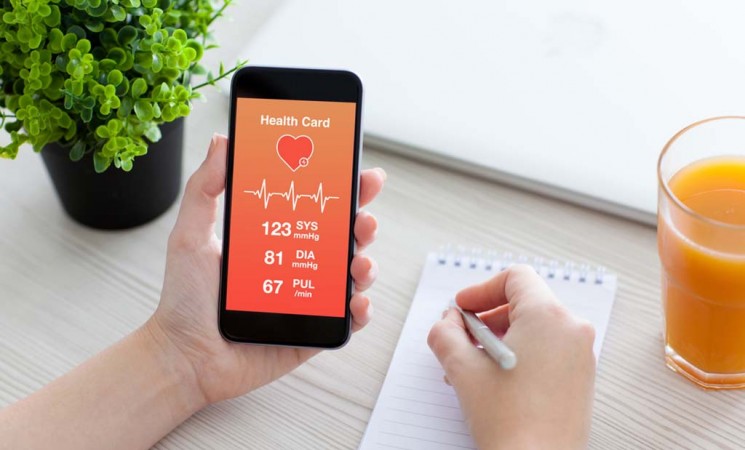Archived Content
This page is archived and provided for historical reference. The content is no longer being updated, and some of the information may have changed over time and could be outdated or inaccurate.

By Charlene Quinn, Ph.D., R.N.
Diabetes as an epidemic has been well documented by national studies, some sponsored by the NIH, the Centers for Disease Control, and other global organizations. And we think of it as an epidemic because the number of people who have diabetes or pre-diabetes continues to grow. We're beginning to learn about genetic causes of diabetes, but for the majority of people in the United States who have diabetes, the disease is related to behavior that can be modified through lifestyle changes.
Dr. Charlene Quinn discusses her research using mHealth (or mobile health) to manage diabetes.
I became interested in this field about 7 years ago when I was trying to think of new interventions that might help people with chronic diseases, particularly diabetes. My father, 88 years old, had diabetes, and he did a great job of testing his blood glucose every day, but he really didn't have a good idea of what those numbers meant. It was a great opportunity to think about ways that people could use technology to shape their health care. Patients could use these tools to send disease-related information, such as blood glucose levels, to health care providers, but patients should also be able to receive feedback on the results of what the information might mean.
There are thousands of applications calling themselves mobile health. Very few of those applications actually have science behind them or document whether there's evidence that they actually work. As technologies go, they were pretty much “let's try it and see if it works and start selling it.” In contrast to this business-driven model, we were very intent on developing a good scientific approach to mobile diabetes management, and we hope the way we are doing our studies can be a model for applications for other diseases.
Our study focuses on a particular clinical outcome—change in blood glucose. What's important and what relates to the Office of Behavioral and Social Sciences Research (OBSSR) is not so much the clinical outcomes, but the behaviors attached to those clinical outcomes. Our study is just a beginning; it’s just a first study.
Mobile phones are ubiquitous, so there are a number of interventions that are being developed on mobile phones. There are also revisions being made to existing mobile technology to make health care more efficient. For example, people with diabetes are asked to test their blood glucose with a meter. Those meters are being changed to not only test blood glucose but also to communicate results directly to a provider or to a web portal. When we think of mobile health, we can also think in terms of unobtrusive measurements. We need to think of devices that are based on sensors. Companies are developing wearable shirts that sense the biomechanical outcomes of what we eat, our temperature, and our blood glucose level, and then send that data to web portals and other devices we think of as mobile.
We're just at the beginning stage of mobile health and mobile health as a science. We have to bring together multiple disciplines in order to address these issues. For that to happen, an agency, such as the OBSSR, has to bring these issues to the forefront and bring together researchers from different disciplines, including information technology, engineering, medicine, and psychology. We really need to think through not only data and numbers, but how people can be encouraged to change their behavior using mobile health or mobile technologies. This can lead to improved individual health and ideally improved public health.
Additional Information
Charlene Quinn’s University of Maryland faculty page.
About the Author
 Charlene Quinn, Ph.D., RN
Charlene Quinn, Ph.D., RN
Associate Professor, University of Maryland School of Medicine
Dr. Charlene Quinn is an associate professor at the University of Maryland Medical School, where she directs research studies and teaches clinical and graduate students in health policy, gerontology, and health services research. A former White House Fellow and senior federal executive, she has extensive government, business and research experience in health services policy, gerontology, and health delivery technologies. In recent years, she has focused her research and clinical trial work on the use and development of mobile health and behavior interventions to enhance the management of diabetes and other chronic diseases, working closely with the NIH, the National Science Foundation, the Robert Wood Johnson Foundation, insurers, and the private sector. Dr. Quinn is a recognized NIH pioneer scientist.
Photo Credit: Shutterstock/ Denys Prykhodov








